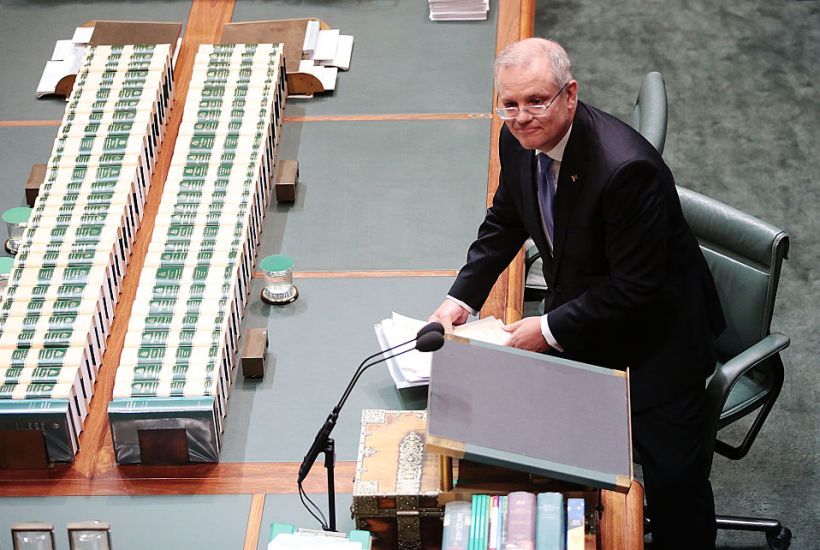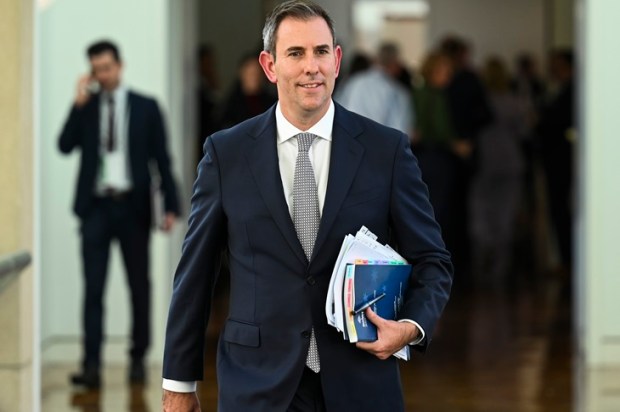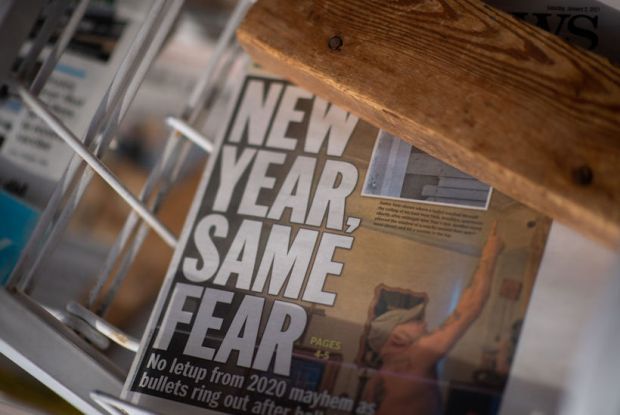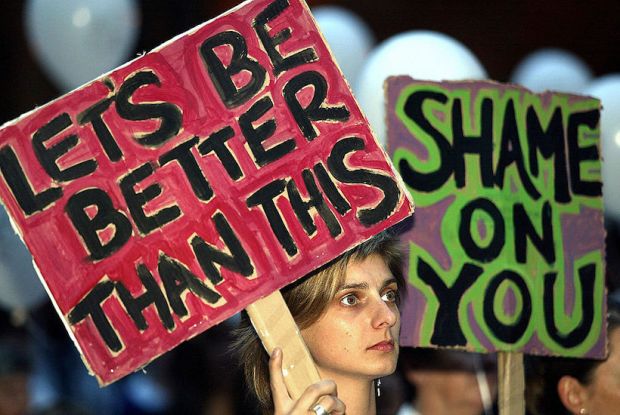Language constantly evolves to match the evolving society. Words get old and become obsolete, new words come in to enrich our vocabulary. We are witnessing at the moment another interesting linguistic phenomenon: a colloquial meaning of a word is being redefined to its antithesis. Budget always used to mean a plan for expenditure – how much do you have and what you are going to do with it – but it was also used to denote a certain attitude to money: sensible, thrifty, affordable, non-extravagant. “We’re on a budget”, “budget holidays”, “won’t break the budget”; all these sayings acknowledging the ultimately limited nature of resources available and the need – even moral obligation – to stay within the prescribed limits and spend the money well, to get the best “value for money”.
But then there is the Federal Budget, the budget that gives “budget” a bad name. In a meta sense it still is a plan for expenditure, but unlike in times past, it seems no longer moored in any tangible sense of everyday reality. When once, you feel, governments of both persuasions considered the Budget a rather sacred instrument of marshalling limited resources extracted from the taxpayers for a limited number of important purposes, now the Budget is an unfathomable spending extravaganza performed in accordance with the unicorn economics; just another euphemism for “watch us pull I.O.U.s out of our collective asshole”. To paraphrase Dire Straits (the most budgetary band name ever), “money from nothing and the cheques for free”. The Budget is no longer a budget, not just in a sense that it is increasingly a fantasy document as opposed to an exercise in sombre and boring accounting, but it is also the opposite of “budgeting” – it’s all about going beyond limits, not being bound by the same rules that mere mortals still have to adhere to, and splurging promiscuously, indiscriminately and without concern, as if the world was ending tomorrow. Surely, this degradation of the term “budget” must soon start getting reflected in our common language. In a few years’ time, when you hear the words “budget airline” you will know it will refer to an air carrier that is in debt up to eyeballs and nearly insolvent because it insists on flying all routes to everywhere with business service at the economy prices.
Scott Morrison says that the Budget “will not tickle the ear of ideologues”. I assume that by ideologues he means those few silly, misguided and unrealistic individuals who think that government shouldn’t spend more than it receives or that debt is an immoral way to make our children pay for our excesses today. If that’s the case, then I guess I am an ideologue. As such, I also don’t need a government to tickle my ears; I can do it myself. But it’s disappointing that one of the key policy positions that has most attracted me to the political right having escaped communism doesn’t seem to be all that important anymore to so many on my side.
Oh listen, I understand. I’ve been in government and I’ve been in opposition and I know how nearly damned impossible it is to cut any spending. Every new initiative, every new program instantly creates its own constituency, which now depends on that money and treats it as a God-given right. And everything is so very important that the country would not survive were the expenditure to be reduced, much less if eliminated. The steady and unstoppable growth of government, of expenditure, bureaucracy, the state – whatever you want to call it – seems to be increasingly one of the iron laws of politics like the Laws of Thermodynamics in physics (entropy everywhere!).
European-style social democracy has won the battle of ideas in Australia, though to call it a battle of ideas might be to give far too much intellectual dignity to the tawdry story of opportunism, expediency, inertia and gutlessness. Victory, similarly, might be overstating what in reality has been a surrender, and one with a whimper, not a bang. However it has happened over the past decade, there is no major political party in Australia anymore which believes in fiscal responsibility, balanced budgets, no government debt, less tax and a smaller government, and by “believe” I mean is genuinely committed to, as opposed to occasionally still mouthing platitudes. In theological terms, the balanced budget has ceased to be the imminent Second Coming expected by the first Christians and has become an eschatological event far away in the future, at an undetermined time and day – “The Lord will come back to judge the living and the dead some time beyond the Church’s forward estimates.”
Australia now has the same structural debt problem as all the other developed countries. It took Howard and Costello ten years to pay back the nearly $100 billion bequeathed by Labor the last time. The current mountain of debt will never be repaid, it’s just not physically possible. Sometime over the course of the Rudd, Gillard, Rudd, Abbott, Turnbull succession it has become the new normal. A few days ago, we have had a minor public discussion about “good debt” and “bad debt”.
When the pile of your liabilities keeps rising towards half a trillion dollars that’s no longer a useful distinction. And it’s not that for the past ten years the governments have actually been “investing” in anything useful. What we have been doing instead is putting recurrent spending on credit card – worse, not even our own, but our children’s and grandchildren’s credit card. Debt might indeed in theory be good, bad or indifferent, but at least it should be consensual. What the governments are doing nowadays is buying today’s votes with tomorrow’s money that needless to say does not belong to them. Unlike all the past generations of humanity, we are going to leave our descendants worse off, having pissed away they inheritance and then some.
Happy Budget, everyone!
Arthur Chrenkoff blogs at The Daily Chrenk where this piece also appears.
Got something to add? Join the discussion and comment below.
Got something to add? Join the discussion and comment below.
Get 10 issues for just $10
Subscribe to The Spectator Australia today for the next 10 magazine issues, plus full online access, for just $10.


























Comments
Don't miss out
Join the conversation with other Spectator Australia readers. Subscribe to leave a comment.
SUBSCRIBEAlready a subscriber? Log in